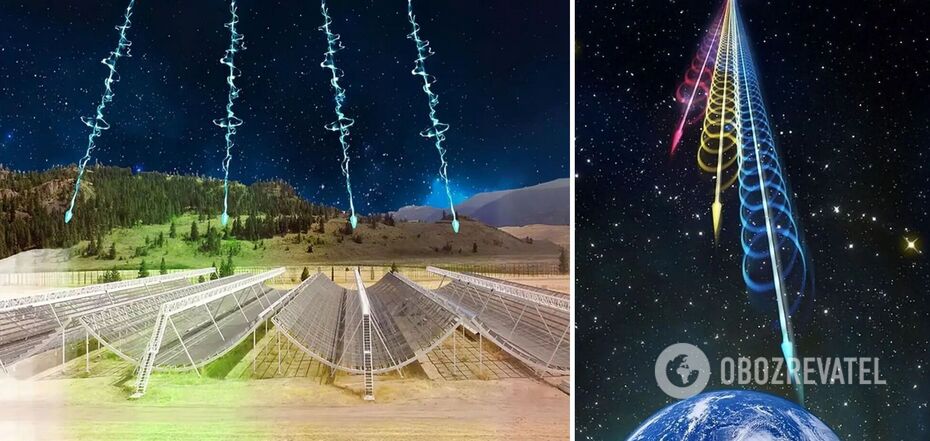News
Astrologers detect 8 billion-year-old signal from deep space
Scientists have managed to detect a fast radio burst (FRB), which is both the oldest and most distant signal from space, dating back eight billion years. It can help to weigh the entire Universe.
This is stated in a study published in Science. According to Talker, scientists managed to surpass the previous record by 50%.
The first FRBs were discovered back in 2007, but since then, scientists have not come closer to understanding what they are. There are not very scientific speculations, the authors of which suggest that such signals are attempts by extraterrestrial life to communicate with humanity. However, there is no evidence to prove this theory.
Now, the researchers say they have discovered the oldest and most distant fast radio burst ever detected to date. According to them, the newly discovered burst may even be useful for Earth-based scientists. In particular, they suggest that it may allow us to measure the "missing" matter between galaxies.
The source of the burst is believed to be a group of two or three merging galaxies. This version confirms the latest theories about the cause of the FRB.
The study also showed that eight billion years is the limit of how far into the past of the Universe modern telescopes can look in search of fast radio bursts.
The ASKAP radio telescope, located in Australia, helped to detect this record-breaking FRB. It managed to record a cosmic event that emitted the equivalent of the total radiation of our Sun for 30 years in milliseconds.
According to the first author of the study, Dr. Stuart Ryder from Macquarie University, thanks to the ASKAP antenna set, scientists were able to determine where the flare came from.
"We then used the Very Large Telescope (VLT) at the European Southern Observatory (ESO) in Chile to search for the source galaxy, finding that it is older and further away than any other FRB source found so far, and likely within a small group of merging galaxies," Ryder said.
According to him, the fast radio burst, dubbed FRB 20220610A, confirmed the concept of weighing the Universe using data from FRBs, which was first demonstrated by the late Australian astronomer Jean-Pierre "J-P" McQuart. He showed that the further a fast radio burst is, the more diffuse gas it detects between galaxies.
To date, about 50 FRBs have been detected, almost half of them with ASKAP.
The authors of the record-breaking discovery believe that they will be able to detect thousands of them across the sky and at even greater distances.
"Although we still don't know what causes these massive bursts of energy, the work confirms that fast radio bursts are common in space and that we can use them to detect matter between galaxies and better understand the structure of the Universe," said Professor Ryan Shannon of Swinburne University of Technology.
ASKAP is currently the best radio telescope for detecting and localizing FRBs. However, the international SKA telescopes currently under construction in Western Australia and South Africa will be even better and will allow astronomers to find even older and more distant FRBs.
The nearly 40-meter mirror of the ESO's Very Large Telescope, which is currently under construction in the high, dry Chilean desert, will be needed to study their source galaxies.
Earlier, OBOZ.UA reported that scientists have discovered an exoplanet that sends strange radio waves into space. Scientists hope for a historic discovery.
Subscribe to OBOZ.UA on Telegram and Viber to keep up with the latest events.



























